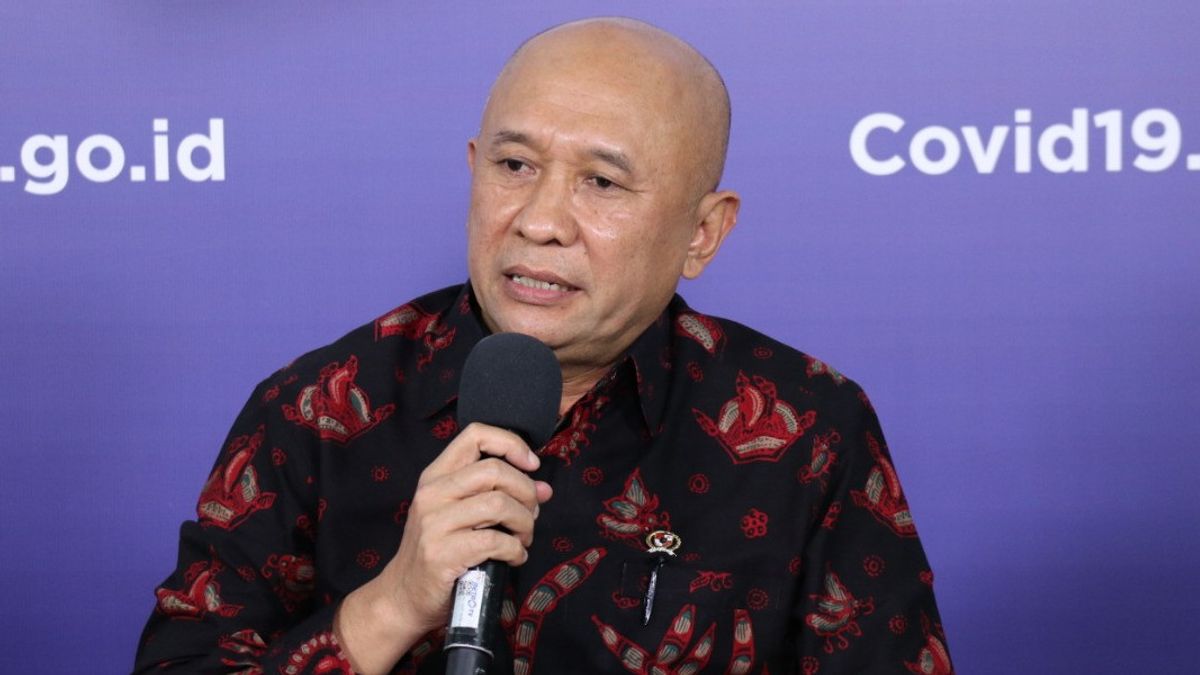JAKARTA - Minister of Cooperatives (Menkop) and UKM Teten Masduki said that women entrepreneurs and their roles are very strategic as economic heroes, especially in the cooperative and SME sectors.
Minister of Cooperatives and UKM Teten Masduki in the second congress of the Indonesian Muslim Women Entrepreneurs Association which was held online, Wednesday, said that currently the development of the Islamic economy and women entrepreneurs is very fast.
"Indonesia is in 4th place in the halal tourism industry, 3rd for Muslim fashion, and 5th for Islamic finance. However, for halal food products, Indonesia is not yet in the top 10 based on the State of The Global Islamic Economy Report 2019-2020," said Teten. Masduki, quoted from Antara, Wednesday, December 2.
Current BPS data shows that 43.45 percent of non-agricultural MSME entrepreneurs are women. The KemenkopUKM database also shows that out of a total of 123,048 active cooperatives, 11,458 are female cooperatives.
According to Teten Masduki, in the creative industry economy women also play the main role. Based on the 2016 Economic Census, women entrepreneurs still lead, with a percentage of 54.96 percent.
"As a community organization established to enhance the role of Muslim women entrepreneurs, the role of IPEMI is very important in the economic empowerment of the community, towards economic independence with an Indonesian personality and good morals," said Teten.
The government, he said, needed to work together with IPEMI to encourage more women to enter into economic and business activities.
"Finally, to all the participants, congratulations on holding the congress, forming a stronger network and hopefully the programs that have been implemented such as the IPEMI Gallery, Muslimah salon, IPEMI magazine media and business management training education can continue to be developed to encourage female MSMEs to become more competitive," said Teten. Masduki.
On that occasion, Teten Masduki emphasized that the government in the midst of a pandemic offered various facilities through the Job Creation Law and the government continued to make efforts to accelerate the recovery and transformation of the cooperative economy and SMEs.
The three transformations referred to, said Teten Masduki, are transformation to the formal sector. The implementation of the One Stop Policy is particularly related to the ease of business licensing including single licensing, single data, and others.
Second, namely the transformation to digital and the use of technology, through the development of MSME business incubations in collaboration with the pillars of Penta Helix, one of which is universities and optimizing aggregators and enablers. The third is the transformation to the value chain based on clusters, areas and leading commodities.
The event was attended by the General Chairperson of the Indonesian Muslim Women Entrepreneurs Association (PP IPEMI) and members of the Indonesian Muslim Women Entrepreneurs Association (PP IPEMI).
The English, Chinese, Japanese, Arabic, and French versions are automatically generated by the AI. So there may still be inaccuracies in translating, please always see Indonesian as our main language. (system supported by DigitalSiber.id)












